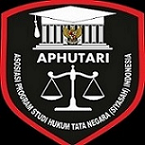Pelaksanaan Aqiqah Ditinjau Dari Fiqih Syafi’iyah
Abstract
This research is based on the implementation of aqiqah in Wek IV Sub-District, North Padangsidimpuan District, Padangsidimpuan City, which performs aqiqah on adult children and is carried out the day before the child is married. The formulation of the problem in this study is how the implementation of aqiqah in Wek IV Village and how the implementation of Aqiqah in Wek IV Village is viewed from Islamic law according to Fiqih Syafi'iyah, as well as what causes people to implement aqiqah after adult children. The purpose of this study was to determine the implementation of aqiqah in Wek IV Village, to find out the review of Islamic law according to the Syafi'iyah School of Religion on the implementation of aqiqah after adulthood, and to find out why the Wek IV community carried out aqiqah as an adult. This research uses qualitative research. The results of this study indicate that the implementation of aqiqah in Wek IV Village globally has fulfilled the aqiqah. It can be seen in its implementation the community has slaughtered the aqiqah animal that had been determined by the Syafi'iyah fiqih. However, when viewed from a harmonious perspective, it is not in accordance with the provisions of Fiqih Syafi'iyah because the child who is diaqiqah is already baligh and does not cut the hair of the child he qiqah. As for the background of the Wek IV community in carrying out aqiqah on adult children because it has become a custom that is passed from generation to generation to carry out aqiqah when the child is an adult.
Keywords
Full Text:
PDFReferences
a. Sumber Buku Ahmad Hilmi, Kupas Tuntas Syariat Aqiqah ,Jakarta: Rumah Fiqih Publishing, 2018 Fuad A Said, Kurban dan Akikah Menurut Ajaran Islam, Jakarta Pusat: Pustaka Al – Husna, 1994 Ibn Qoyyim Al-Jauziyyah, Mengantar Balita Menuju Dewasa, Penerjemah Fauzi Bahreisy, Jakarta:PT. Serambi Ilmu Semesta, 2002. Musthafa, Masyhur. Min Fiq al-Dakhwah Juz 1; Kislamiyah, Kairo: Dar at-Tauzi wa an-Nasry al-Islamiyah 1415 H/1995 M b. Sumber Jurnal Siregar, Dame. Kritik Matan Tentang Hadis – Hadis Sembelihan Aqiqah. Darul ’Ilmi 5 no. 01 (2013): 20. Harahap, Ikhwanuddin. Memahami Urgensi Perbedaan MAzhab Dalam Konstruksi Hukum Islam Di Era Millenial. Jurnal Al-Maqasid: Jurnal Ilmu Kesyariahan Dan Keperdataan 1 , no. 1 (2019): 13. Harahap, Risalan Basri. Hak Suami Dan Batasannya Dalam Memperlakukan Istri Saat Nusyuz. Jurnal AL-Maqasid: Jurnal Ilmu Kesyariahan Dan Keperdataan 4, no. 2, (2018): 62. Hasiah. Mengintip Keberadaan Anak Dalam Al-Qur’an. Jurnal El-Qanuniy: Jurnal Ilmu-Ilmu Kesyariahan Dan Pranata Sosial 6, no. 1 (2020): 95. Siregar, Sawaluddin. Wasilah Ibadah Agung Yang Banyak Terselewengkan. Jurnal Yurisprudentia: Jurnal Hukum Ekonomi 3, no. 1 (2017): 40. Siregar, Sawaluddin. Hakikat Kuliah Kerja Lapangan Dan Perubahan Masyarakat Kec. Dolok Kab. Padang Lawas Utara. Jurnal Al-Maqasid: Jurnal Ilmu Kesyariahan Dan Keperdataan 3, no. 2 (2019): 42. Siregar, Syapar Allim. Nasakh Wa Mansukh. Jurnal AL-Maqasid: Jurnal Ilmu Kesyariahan Dan Keperdataan 6, no. 1, (2020), 26. Hasibuan, Zulfan Efendi. Kedudukan Anak Angkat Dalam Hukum Islam. Jurnal Yurisprudentia: Jurnal Hukum Ekonomi 5, no. No. 1 (2019): 75.
DOI: https://doi.org/10.24952/el-thawalib.v2i2.3482
Refbacks
- There are currently no refbacks.









Editorial Office Board :
Kampus UIN Syekh Ali Hasan Ahmad Addary Padangsidimpuan
Jl. T Rizal Nurdin No.Km 4, RW.5, Sihitang, Padangsidimpuan Tenggara, Kota Padang Sidempuan, Sumatera Utara 22733
 Jurnal El-Thawalib is licensed under a Creative Commons Attribution-ShareAlike 4.0 International License.
Jurnal El-Thawalib is licensed under a Creative Commons Attribution-ShareAlike 4.0 International License.
View My Stats






